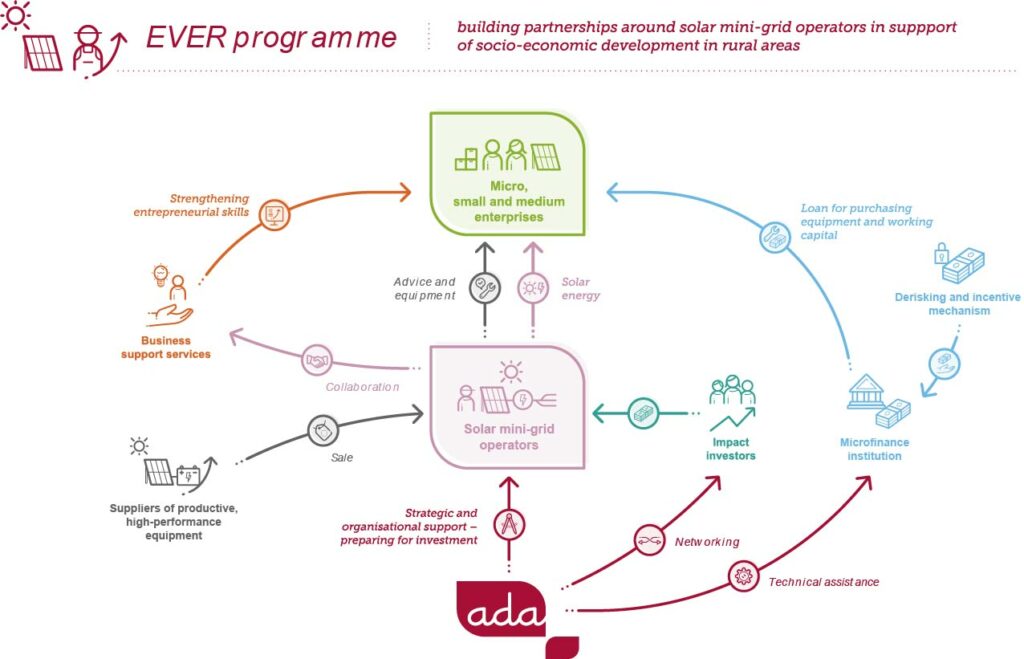Building synergies for PURE in West Africa
In 2024, ARE Member ADA launched the “Green Energy for Rural Development” (EVER) programme to highlight the role of solar energy in rural development and reducing the energy gap. Partnerships have been established with mini-grid operators, including COSEER in Senegal and ARE Member ARESS in Benin. These projects were founded on the same observation: without PURE, mini-grid viability is at risk.
Experience has shown that without targeted efforts, electricity consumption remains too low to generate sufficient revenue for operators. In a best-case-scenario, various stakeholders collaborate to enhance PURE:
- Entrepreneurship support organisations identify and mentor both new and existing rural entrepreneurs.
- Local distributors of energy-efficient equipment provide after-sales services.
- Microfinance institutions (MFIs) provide financial services for equipment acquisition.
- Governments, investors, and development partners allocate funding for PURE development.

However, in our intervention regions, not all these actors are in place, and significant gaps remain in the PURE value chain. To tackle this issue, ADA is testing a few key assumptions:
- Mini-grid operators should expand their role to include last-mile PURE equipment provision.
- Entrepreneurship support programmes should be subsidised for vulnerable populations.
- Innovative mechanisms should be developed to encourage MFIs to explore this market with mitigated risks.
In practical terms, within our project with COSEER in Senegal, the operator has expanded beyond its core business by supplying PURE equipment to last-mile clients. A total of 45 PURE products are listed on their sales catalogue. “Advisory sales staff” have been trained to sell this equipment in over 60 newly electrified villages, and to guide customers on proper usage. Additionally, ADA implemented a Results-Based Financing (RBF) mechanism, which provides grants covering up to 35% of the PURE loans disbursed by MFIs. This approach, which links financial support to predefined performance criteria, helps mitigate repayment risks and can serve as an internal guarantee fund, strengthening the financial security of MFIs while fostering the development of the PURE market. Furthermore, the NGO Mercy Corps provides entrepreneurship support to rural entrepreneurs, especially women.
In 2024, the project enabled 977 new customers to connect to COSEER-operated mini-grids, one-third of whom are rural PURE entrepreneurs. Looking ahead to 2025, further initiatives will take place in Benin with ARESS. Nearby MFIs have already shown their interest in the RBF mechanism, and the business incubator SENS Benin will provide business coaching. Impact measurements will be shared across the ARE network, fostering knowledge-sharing and scaling up this promising research-action initiative.
